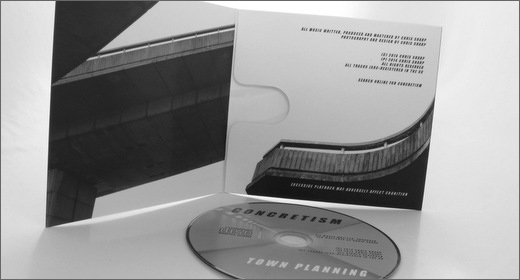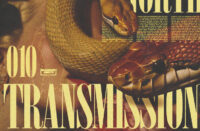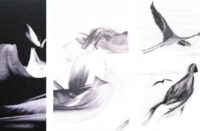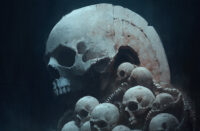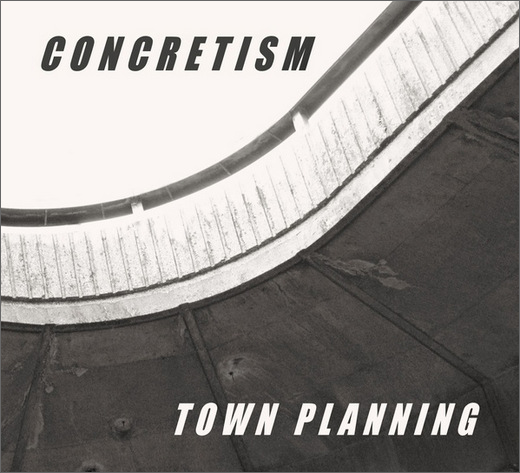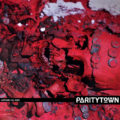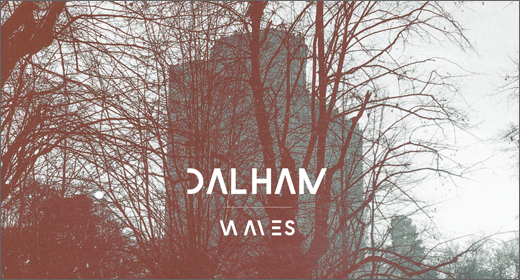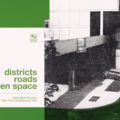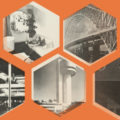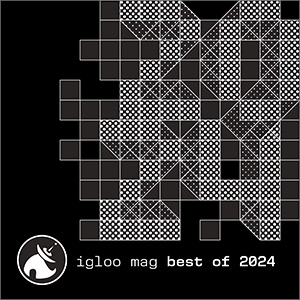Town Planning is neo-brutalism under a constantly anthracite sky. It is conceptual art celebrating its greyness, its standardization and the strange pull it exercises on us today.
With a catchy opening theme worthy of Delia Derbyshire circa 1963, Chris Sharp shifts his Concretism onto a new, once promising format, the compact disc, after a themed quartet of digital EPs. Concretism is the very urban kin of that specifically English stripe of “hauntology”—a term originally coined by philosopher Jacques Derrida to denote our sense of a technological utopism that failed to materialize. It dwells in both city and countryside and wallows in memories of postwar welfare society, particularly during the sixties and seventies (up to the rude slamming on the brakes of Thatcherism), which encouraged experimentalism for the benefit of the many, in education, public broadcasting and industrialized housing, health care and design, at the BBC and in the recording studio. Highly self-reflective, its mental landscape will be familiar to readers of J.G. Ballard, listeners of Leyland Kirby and the entire Ghost Box label roster, and visitors to the municipality of Scarfolk. Certain themes resurface: the occult, childhood and school days, totalitarianism and dystopia, memory and nostalgia, social paranoia (a reflection of growing populist concerns about immigration and realist concerns about surveillance).
In his study “Weird Britain in Exile”, James Sexton, a lecturer in Film and Television Studies at Northumbria University, describes hauntology in the audio-visual arts (thoroughly scrapbooked here) as “a network of associations…engaged in [the creation of] a form of alternative heritage,” not passed down by mainstream musical discourse, raising interesting issues about nostalgia and imitation, allusion, collage and pastiche, comparison, confrontation and transformation, contemporary crises and fears. Writing about Scarfolk, the imagined northern town where time stopped in a dark phantasm of 1979, and which connects directly to the music of Concretism (as testified by its creator), University of Hertfordshire historian Katrina Navickas, while maintaining a certain skeptical distance, underlines the importance of the surreal and disturbingly Midwichian overtone of this Britain—a place of dreams and boredom, great ideas being implemented and then slowly crushed. The juxtaposition of staidness, absurdity and outright horror is the hauntologist’s method of expressing the conundrum that the past may well be our only authentic experience.
“Welcome,” writes Chris Sharp, “to my grey world of dusty archival sounds, sinister public information films and drab Cold War Britain.” While Concretism, like Ghost Box and Scarfolk, may be caught in a continuous loop replaying the recent past, all his sounds are made from scratch with synthesizers, tapes and self-sampling. Which in a way connects him with both pioneers like Derbyshire, Daphne Oram and their contemporaries but also the Arts and Crafts movement of John Ruskin and William Morris, champions of British craftsmanship—feeding off but also nourishing backward.
Town Planning is neo-brutalism under a constantly anthracite sky. It is conceptual art celebrating its greyness, its standardization and the strange pull it exercises on us today. And “celebrate” is indeed the right word, amply communicated through the optimistic enthusiasm each track telegraphs. There is such energy here, the music absolutely careers through the cityscape, convinced that a great, egalitarian society is in the offing, and this is what it sounds like, a feeling authentic enough for any historian to confirm after poring over the archives of the British Film Institute.
Although clear and crisp, the analog synthesizers are just fuzzy enough in their warbling (“Prototype Housing Estate,” “The Age of the Train”) to fool one into believing that the recordings are a good forty years old. Whilst many hauntological acts err on the side of minimalism, Concretism fills space to the brim. The album, its optimism tempered with an elegiac tone (“The Hospital”), a certain wistfulness (the closing, unnamed bonus track), speaks of the deep connection between man and built landscape, even nature and new build (birdsong bouncing off concrete), giving voice to the architecture and infrastructure itself.
Most importantly, Town Planning is a gas.
Town Planning is available at Norman.






